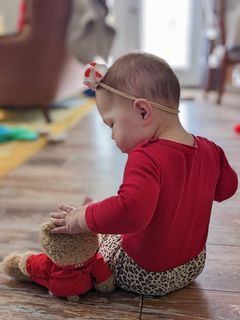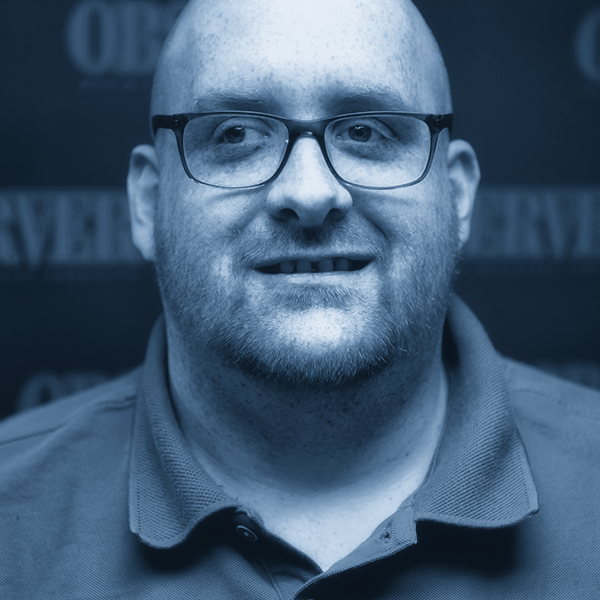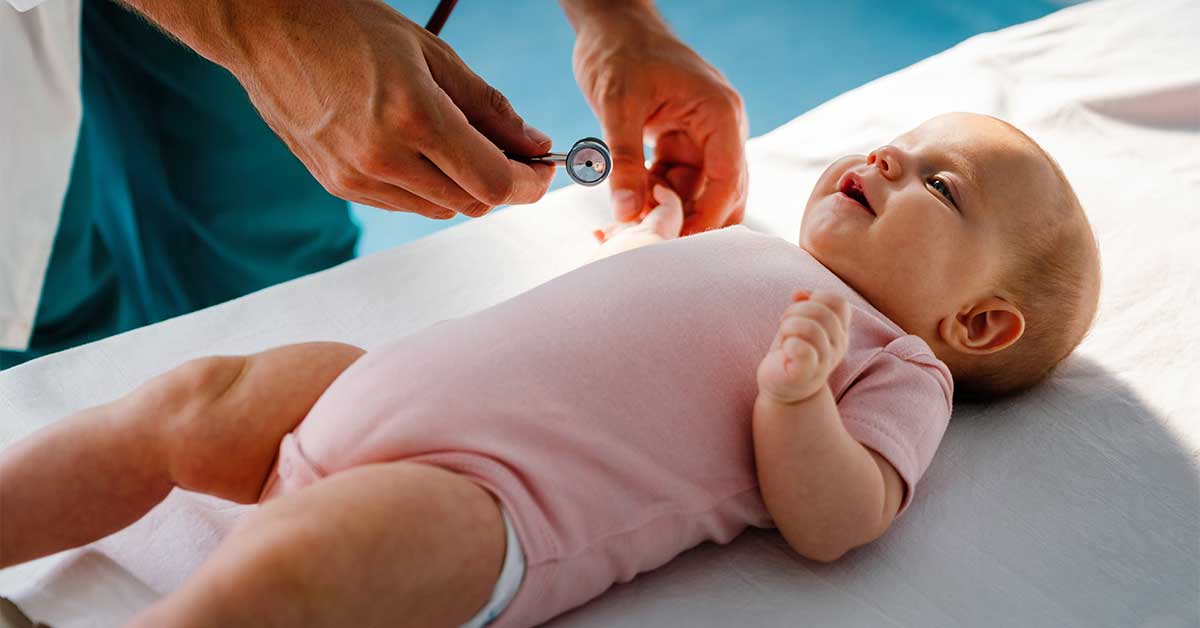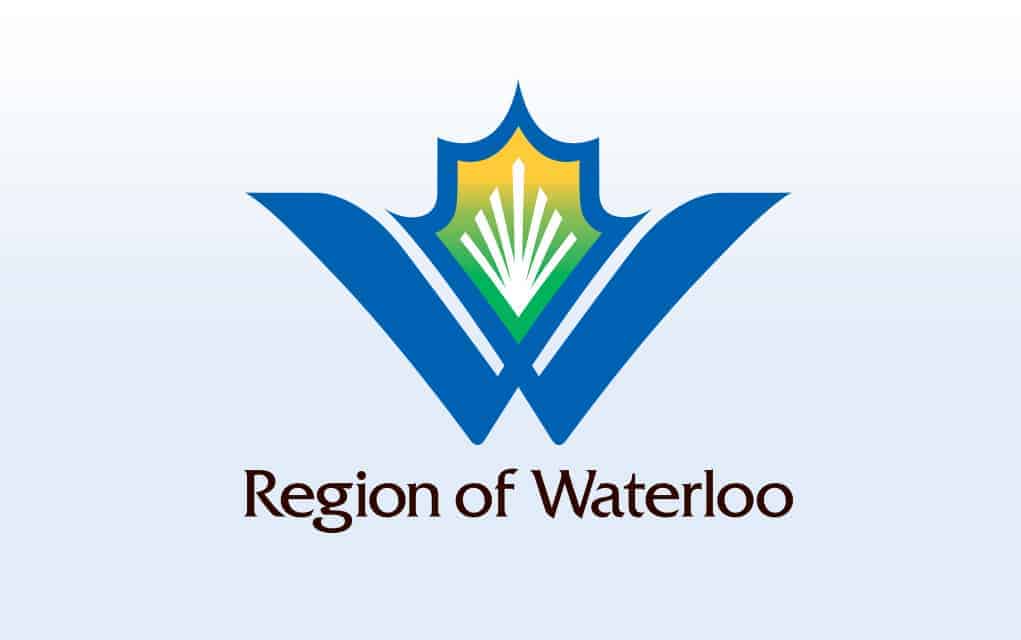A local family is trying to raise awareness of a little known yet fairly common birth defect.
During the second trimester of pregnancy, Jessica and Dylan MacStraus were informed that their daughter has a congenital heart defect (CHD).
According to the Canadian Congenital Heart Alliance, CHD is a structural problem (or defect) in the heart that is present at birth. It is the most common type of major birth defect affecting one in 80-100 Canadian newborns. There are several different types of CHD each ranging in severity.
A doctor examining an ultrasound discovered the issue.

“At 20 weeks the heart is about the size of an acorn. So imagine how much smaller it is at 13 weeks. And at our 13-week ultrasound, they noticed that something didn’t look quite right. And we were referred to McMaster [hospital] for our 20-week ultrasound that they found this heart defect,” Jessica said.
“We were really lucky, but there’s a lot of kids being born without receiving this early diagnosis. And this is why we really want to raise awareness. We want people to be thinking of their 20-week scan as more than just a gender reveal and really thinking of it as that anatomy scan, which is what it’s meant for. … It’s so important to be able to look and see if they can find any potential defects,” Jessica said.
The MacStraus’ daughter has hypoplastic left heart syndrome, meaning her left ventricle did not develop properly. This led to her pulmonary artery and aorta both coming out of her right ventricle.
“Like any parent you want your kid to have the best possible quality of life. You want your kid to experience life as good if not better. So I think we were concerned about this robbing her of that in any way, shape or form,” Dylan said about learning the diagnosis.
The child has already had two surgeries, the first at four days old and the second at four months. A third surgery will take place at a later date.
While medical science has come a long way in diagnosing and treating CHD, the surgeries are not a permanent fix, Jessica explained
“If we had been born with her heart defect, there’s a pretty solid chance that we wouldn’t be here today. So knowing how far things have come for her, but knowing that her surgeries are considered palliative surgery. There is no cure for congenital heart defects. This will be something that she will experience for the rest of her life,” she said.
To help raise awareness Jessica has created an Instagram account to share their experiences as parents of a child with CHD. She also has been providing advice to newer parents who receive a diagnosis of the condition.
“Oftentimes when I’ve started talking with somebody who’d received a new diagnosis, it turns into a little bit of a rapid-fire of questions because when you first get that diagnosis, you don’t really know what to ask or where to look. You’re shifting gears from planning a baby shower to planning a hospital stay,” she said.
“When you have a medically complex baby you don’t need the same sorts of things that you would need at home. You don’t need a ton of newborn sleepers, you need soothers and you need nap side sleepers, things that won’t irritate the incision, those kinds of things that you don’t really think about until you’re thrown into it. So it’s a lot of kind of in the moment, practical discussion and then a lot of support of, you know what we know it’s scary, but here we are. Our daughter’s 16 months old and she’s walking and she’s doing so many things that sometimes we forget that she has a heart defect,” she added.
They’ve also connected with adults living with CHD.
“What I really love about communicating with adults with CHD is the hope that they bring to it and the awareness so I think that there are some of the best advocates for continued care, especially for this adult congenital heart community that didn’t exist previously…knowing that as our daughter gets older, she’s going to have questions and her questions when she’s three are going to be very different from her questions when she’s 14, or her questions when she’s going off to university. And knowing that there are other people who have paved the way for her to be successful it’s really heartwarming,” she said.
“There’s more adults now living with congenital heart defects than babies being born and diagnosed. And there’s something pretty inspiring and hopeful about that,” added Dylan.
The MacStrauses recently conducted a fundraiser for SickKids Hospital in Toronto, where their daughter’s surgeries took place.
“They’re due for an upgrade and they’re deserving of it, you know, and so I think that our thoughts were recognizing their efforts to build a new building and to keep up with the time, so to speak. We were hopeful to support that,” Dylan said.
The fundraiser coincided with the anniversary of the child’s second surgery, or heartiversary as it is known in the CHD circle.
“To date we’ve raised $600 over our $500 goal to Sick Kids and we are just over the moon about that and we look forward to seeing what else we can do for next year and how else we can continue to celebrate these big milestones. Any surgical intervention is really scary. It’s really switching that narrative from something that was really necessary but also really scary and changing it to something that’s really positive and taking an opportunity to reflect back on how far she’s come since that surgery,” Jessica said.
Like any hard challenge their experience provided a different view on the world, Dylan said.
“We take for granted having perfectly healthy hearts. I think as far as our assessment of life and how short it is, you know those sorts of pieces that I think happened pretty naturally with that transition to becoming a parent. In many ways that lit a fire for us.









